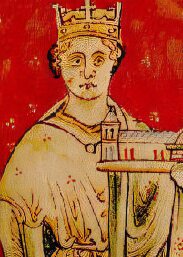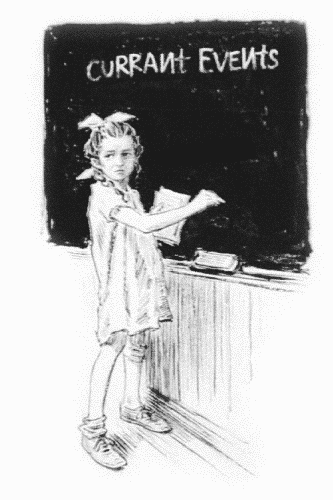God sells us all things at the price of labour."
-Leonardo da Vinci
Discipline and Passion.
Something I've been thinking about lately.
They are the two things that I personally want my children to grasp hold of as we make our way through our homeschool odyssey.
My personal educational journey was certainly a model of discipline, self-motivation and success - in terms of academic achievement and gaining a good degree. Yet I do not necessarily claim to have learnt very much in all those years.
Let me explain:
I was lazy - so I was told all through my primary school years. Now, I honestly don't recall that to be the case but I guess my report card attests to that fact: "Satisfactory work", "Could do better", "Try harder"; words transcribed in ink, a constant reminder that I didn't quite measure up - not up to the other girls in my class at least. Our report cards would give our position in the class and each year I would be marked 36th or 38th (or thereabouts) out of 40 girls, much to my dismay. In those days, (scarily, I'm now of the age where I can legitimately say that) - kids were streamed by ability into different classes. It was a smallish school at the time so it was Class A and Class B. I'd comfort myself with the thought that at least I was in the "A" Class and so I must still be cleverer than
those girls in the "B" class. It really was a mentality that was drummed into us, that what counted was being clever and passing your exams well.
At age 11, we had to sit national exams which decided if you got into the secondary school of your choice. Classes here were also ranked according to ability - A for the top and F was the worst. Sitting in groups in the large airless hall, the teachers marched in to announce the classes that we would be put in. First, they read out the names of the students that made it to the coveted top class - I was not on that list. In envy and dismay - I watched the girls file out to their new elite class. Well, I thought to myself, if I make it to either the B or C class, that would be respectable. Names were read, girls filed out and I was still sitting there. It began to sink in that I was going to be in one of the classes for the"not-so-bright" and with that came all the baggage of not being quite as good as the others, being lower down in the chain of popularity, being looked upon with pity and even looked down on. My heart sank as my name was announced for Class E. None of my friends from my previous class were with me and I was now one of
those girls who were seen as either lazy or unintelligent.
It was there and then that I decided that I had something to prove. If I had not been motivated before to study for my exams and work hard, now I was. I was going to show everyone that I was not stupid and I was going to make something of myself. I did what years of nagging from my parents couldn't do - I motivated myself. My pride had taken a serious fall and I was going to do something about it. I wanted to be successful academically and I worked for it - hard,
really hard. And for me it paid off: I started to do well - topping the year in History, Geography, Bible Knowledge, Literature, English - winning book prizes and coming in near the top out of over 200 girls for the next four years.
I was motivated, disciplined and I had a goal - to do as well as I could academically. I eventually did well enough to get into Oxford to read law. I did not enjoy the course and seriously regretted my choice of subject but despite that fact - I did really well. To my complete surprise - I emerged with a first class honours from Oxford University. I had expected to do well enough considering all the effort and work I put in but it blew me away when I got my results. I had employed all my discipline and work ethic towards a course that I found for most part uninteresting and if I were honest, I don't think I learnt or retained a huge amount from those years. My success can only be attributed to the fact that I was well versed in how to sit exams, worked extremely hard and not a small amount of prayer!
Discipline can get you far - my personal experience tells me that. It is undeniably a lynch-pin to succeeding in whatever endeavour we undertake. But how I wish I had chosen to do something I was passionate about, something that excited me and inspired me rather than something that seemed like a good career move. I wish I had chosen to follow my heart - because what would have happened if I had thrown passion into the mix with all that discipline and hard work? Oh how I wish....
I think when discipline and passion come together - the magic happens. There is nothing like a motivation and a desire that is born inside of you. People can cajole, nag, push and even force you towards success in any area and with immense discipline and self-sacrifice - one can, I feel, achieve great things. However, when you want it as much as someone else wants it for you - that's when it really changes everything.
My personal motivation to prove myself was totally self-serving but it taught me a lesson about the importance of self-motivation; it is the most powerful factor for personal success. This is something I really want my kids to understand. I can encourage them, set schedules, impose discipline and lay a banquet of learning and discovery before them but it is really only when they want it themselves, when it becomes a passion for them - then they will excel and find real satisfaction in their pursuits be they academic, vocational, relational or spiritual.
I believe strongly in discipline - the type of discipline that gets you up at 6am in the morning to read your bible when you would rather snuggle up in bed for an extra few hours. I believe in the discipline of setting aside regular time to exercise or drawing boundaries around your time and work in order to be with your family. I believe in the discipline of working hard, working well, and being on time. I believe in the discipline of generous regular giving and of simplicity. I think teaching our kids to persevere when it gets hard or isn't necessarily fun is important because the hard work required to get to one's goal - be it to be a top tennis player, a competent musician, to lose weight, to get a degree or learn how to sew - is very often challenging, hard-going and not always fun, but the reward is the pleasure of achieving our goals.
Discipline is a skill that needs to be modelled and taught to our kids but ultimately, for it to really bear fruit, they need to get hold of the goal and run with it with a motivation that comes from their own hearts. For example, in our family, we believe in the importance of spending time each morning with God - through reading the bible and through prayer and worship. So when we started homeschooling, we always started the day with a family devotion. We didn't push them to get up early and spend time on their own having quiet times with the Lord but through encouragement to read scripture daily and to take the time to write things down, somehow, they caught a sense of its importance in setting the tone for the day and they started to wonder how to create a space in their lives to enable this. We talked about taking time out before breakfast, after lunch, before bed, and then they just made up their minds that they would do it. Since then, to my amazement, with no pushing from us - they set the clock early and rise up to do their personal devotions first thing in the morning. In fact, when I went through a season of real struggle and was finding it hard to muster the strength to discipline myself to rise early - it was their example that fired me up. The kids were teaching their mum! This experience convinces me how important it is to model behaviour to our kids, because there really is nothing more powerful than seeing someone live out what they believe. It is the kindling that starts the fire in our hearts.
I recently came across this quote from Elizabeth George's book Write Away and her observation about writing and being published:
"You will be published if you posses three qualities: talent, passion and discipline. You will probably be published if you possess two of the three qualities in either combination--either talent and discipline or, passion and discipline. You will likely be published if you possess neither talent nor passion but still have discipline. But, if all you possess is talent or passion, if all you possess is talent and passion, you will not be published."
Discipline will get us far but discipline with passion can take us to the moon. That's why I love it when I see my kids passionate about something whether it is photography or writing. When the interest takes hold, they'll go out of their way to learn everything they can and are constantly looking for opportunities to grow.
I think, as parents, if we can impart discipline and release passion - our children will find their way and not only have real satisfaction in their work but they will pursue it with an excellence. Sometimes, it can take a while to find your passion (some of us are still trying to work this out as adults) and I hope my role as parent and teacher will be not to impose my desires and ambitions on them but to help my children discover who they are, what they are capable of, what their talents and passions are and in doing so, I will give them wings to fly.






.svg/410px-Royal_Arms_of_England_(1198-1340).svg.png)












